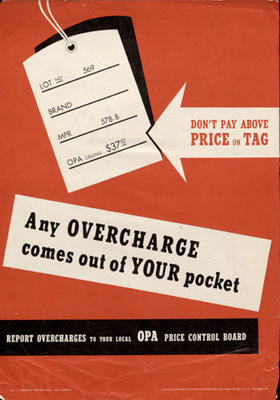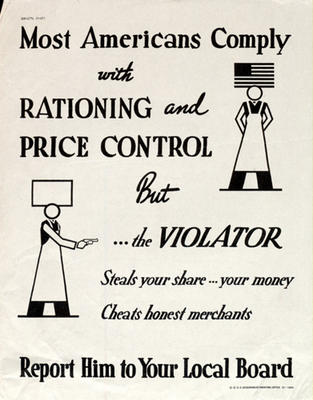In January of this year, my wife and I vacationed in Las Vegas and subsequently in California. This blog entry deals with the Las Vegas leg of our trip, being that I was deeply moved and inspired by the anecdotal experience of a relatively free market in action.When in Vegas, do as the Vegasians do. So I gaped at all the right sights, took dozens of digital snapshots as a proper tourist is obliged; however all the sensory-induced astonishment I was subject to was easily outmatched by the curiosity to understand what makes this
insomnious city tick.
As a minor sidetrack, I was dismayed to learn that Las Vegas's pomp is veneer, although now in hindsight I understand that it doesn't make sense to have it otherwise.

For example, the
Venetian hotel's lobby and
the underside of its enormous outdoor awning bear Sistine Chapel-like frescos which made me catch my breath in amazement. This level of ostentation is expected from hotels which cost billions of dollars, no?
However after my protracted scrutiny, I observed that all was but a masterful application of printed wallpaper, not the skilled work of supine artisans.
If one already knew this instinctively, I beg your pardons, as I am not even remotely expert in matters pertaining to art, paintings, Michaelangelo's magnum opus, painting techniques and methodology,
et cetera. What I found which destroyed this illusion was the very subtle lines where the wallpapers joined. In some places, I even found the wallpaper edges begining to curl, although minimally.
Henceforth for the duration of our visit, the cynical voice within me spoiled all the delicious eye candy I once basked in on a previous visit to this newly-realized "pretentious" city. Plaster or marble objects such as columns and busts suffered my quidnuncous hand-knocking to gauge their hollowness or composition.
Despite all these "shortcomings", I was still impressed by the economic miracle that Las Vegas appears to be. It's obvious that major capital investment has been made in this desert rose. And it's also fairly obvious how this once deserted nowhere became the gaming, tradeshow, shopping and
adult entertainment mecca of the secular world.
According to common lore,
Benjamin "Bugsy" Seigalbaum, a tier-one member of
Murder, Inc. had the crazy idea of expanding
Mayer Lansky and
Salvatore Charles "Lucky" Luciano's gambling and racketeering empire to the west coast. It didn't hurt that the Nevada state had recently legalized gambling in 1931, and that prostitution is not illegal in Nevada counties with
less than 400,000 occupants.
In a unincorporated county known as
Paradise which bordered Las Vegas, he took over a failed hotel project with mob money and built the
Flamingo hotel, reputedly for the reknown oral skills of his favorite mistress
Virginia Hill (it's all in her testimony to the IRS -- gosh, don't you love Wikipedia??)
Combine one part of the following
Kirk Kerkorian, the Hilton corporation (Bally, Ceasar's, and now Harrah's),
Sheldon Adelson,
Steve Wynn and you have the modern-day strip in Las Vegas.



What this all demonstrates is that capital has the nature of water, in the sense that liquid will always flow to the lowest place of its container. Likewise, [the owners of] capital will seek the lowest-regulated enviroment for its investment, as individuals in such places are more free to spend, gamble and invest their savings in the fashion they choose.
However, I think that Las Vegas is not exactly the example one wants to use to demonstrate the potential of a free market. In truth, it's perhaps the opposite. The modern Las Vegas owes itself not a free market, but because the external conditions were unfavorable towards investment. If gambling and prostitution were unregulated
everywhere, its doubtful that anything like Las Vegas would arise in the free market, and instead smaller pockets of popular gambling locations would be numerous and uncountable, unlike today.
Yes, a free market might or would provide extraordinary gambling destinations, but I think that Las Vegas is the effect of unnatural accumulation of capital due to federal-recognized tribal monopolies.
-----------
For an interesting and short lecture on Las Vegas,
William Wieder delivered
A Misesian Perspective on Las Vegas (
right-click link to download)
 Avid reader of Robin Hobb's earlier Farseer, Liveship Traders, and the Tawny Man trilogies will be certain to enjoy her latest Soldier's Son trilogy which begins with a "coming of age" book titled Shaman's Crossing.
Avid reader of Robin Hobb's earlier Farseer, Liveship Traders, and the Tawny Man trilogies will be certain to enjoy her latest Soldier's Son trilogy which begins with a "coming of age" book titled Shaman's Crossing.
















































